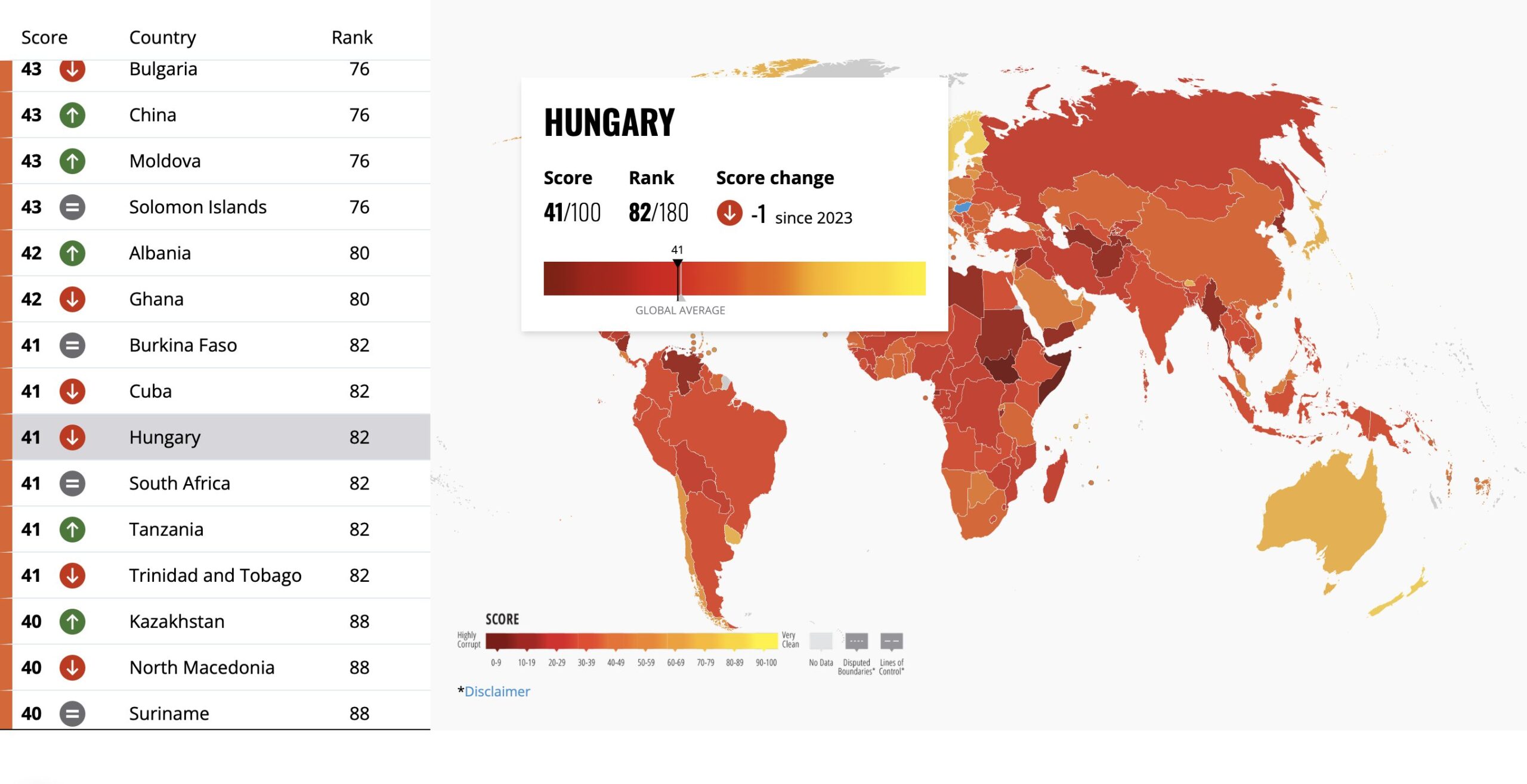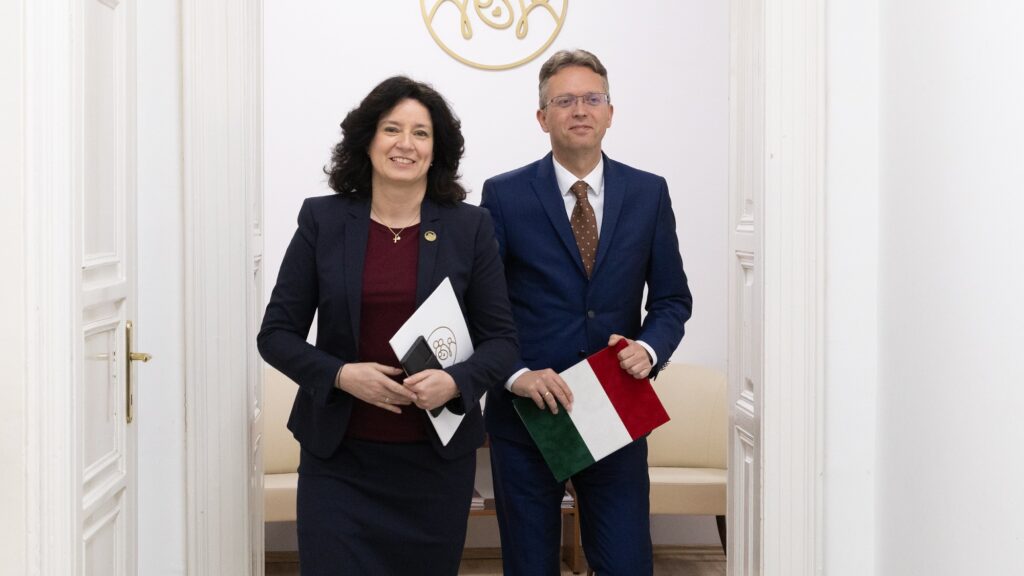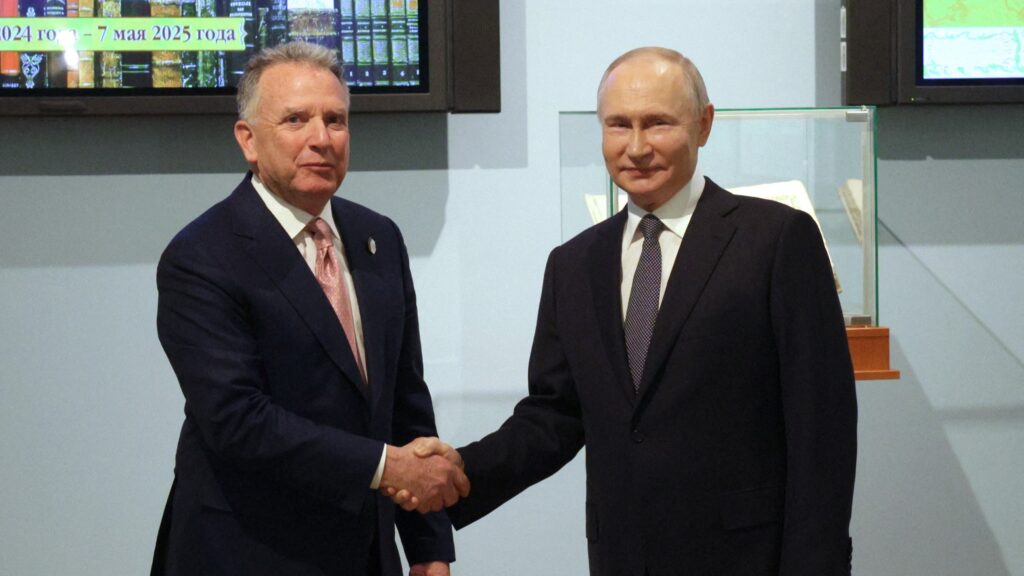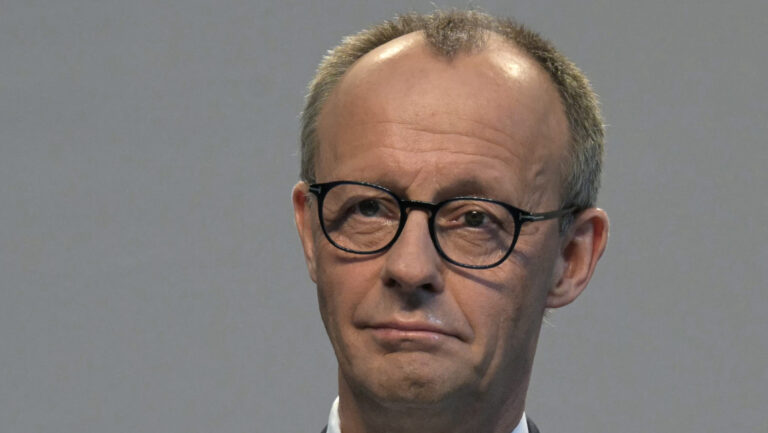A new year brings a new Transparency International (TI) Corruption Perceptions Index (CPI). For the third consecutive year, Hungary has been ranked as the most corrupt country in the European Union, scoring 41 points out of a possible 100—one point lower than last year. According to the NGO, corruption in Hungary is at the same level as in Burkina Faso, Cuba, South Africa, Tanzania, and, last but not least, Trinidad and Tobago. Botswana, a frequent competitor of Hungary in various indexes devised by ‘independent’ NGOs, has once again ranked ahead of the EU member state led by Prime Minister Viktor Orbán and his government—just as it did in the 2024 World Justice Project (WJP) Rule of Law ranking. Until next time, Botswana.
Never Mind — It’s Just the Deep State
On a more serious note, Transparency International is an NGO backed by substantial funding from none other than George Soros’s infamous Open Society Foundations (OSF) and the US Agency for International Development (USAID). This raises significant doubts about the so-called independent and unbiased nature of its rankings.
As US President Donald Trump and the Department for Government Efficiency (DOGE), co-chaired by Elon Musk, continue to scrutinize the controversial operations of USAID—an organization increasingly living up to its reputation as the ‘extended hand of the CIA’—it becomes ever clearer that many self-described independent NGOs are entangled in schemes of money laundering and foreign interference under the disguise of foreign assistance. These operations are orchestrated by the globalist elite to undermine sovereign nation-states that refuse to conform to their destructive agenda. In the European Union, Hungary remains one of the few countries resisting this network, along with a handful of other member states. Slovakia, another sovereignist government, has also seen a significant decline in its CPI ranking since 2023, when Robert Fico took power. As a result, Hungary faces relentless attacks from a network of NGOs and media outlets dedicated to discrediting governments that refuse to align with their objectives.
Who Cares about Objectivity?
With that in mind, let us examine the methodology behind the CPI. Transparency International explains on its website:
‘The Corruption Perceptions Index scores 180 countries and territories around the world based on perceptions of public sector corruption, using 13 different data sources from 12 different institutions, including the World Bank, the World Economic Forum, private risk and consulting companies, think tanks, and others. The scores reflect the views of experts and businesspeople on numerous corrupt behaviours in the public sector, including bribery, state capture, nepotism in the civil service, and diversion of public funds.’
What does this mean in practice? Transparency International does not produce an independent index each year but instead cherry-picks partial results from other corruption indexes. Not only is this an unprofessional approach, but it is also important to note that the indexes, basically the core of CPI, examine different sets of countries, employ varying methodologies and hypotheses, and define corruption in diverse ways. In short, they are not comparable. Furthermore, the wide range of factors considered in these indexes creates ample opportunity for bias.
Another problematic element of Transparency International’s methodology is its reliance on the opinions of ‘experts and businesspeople’. Even if these opinions were selected impartially, they remain subjective and unsuitable for constructing a credible index. The identities of these so-called experts are largely undisclosed, but the individuals who do lend their names to the project have well-documented connections to the aforementioned globalist network.
‘An index that has little to do with objectively measuring corruption and is instead based almost entirely on biased opinions’
The extent of this network becomes even more evident when considering the institutions from which Transparency International sources its data. Besides the World Bank and the World Economic Forum, the NGO also relies on familiar actors such as the World Justice Project and Freedom House. These organizations are integral components of the globalist elite’s foreign interference machine—often referred to as the ‘regime change machine’. The cycle of mutual reinforcement is apparent: the World Justice Project’s Rule of Law Index and Freedom House both cite Transparency International’s findings when assessing corruption levels, and Transparency International, in turn, incorporates their results into the CPI. The outcome? An index that has little to do with objectively measuring corruption and is instead based almost entirely on biased opinions.
This carefully curated, seemingly neutral index is then widely referenced in mainstream media to demonize and discredit conservative, right-wing, and sovereignist governments. A telling example of its political impact came in January, when US President Joe Biden’s administration cited Transparency International’s CPI as justification for sanctioning Antal Rogán, Chief of Staff to Hungarian Prime Minister Viktor Orbán.
Buying Narratives
Now, let us examine Transparency International’s funding. According to financial reports from 2022, USAID allocated approximately $2.5 million to the NGO, while Soros’s OSF contributed $2.35 million, representing around 2.3 per cent of its budget. When focusing specifically on Hungary, however, the influence of these funders becomes even more pronounced: in 2022 USAID and OSF provided 20 and 18.8 per cent, respectively, of Transparency International Hungary’s total budget. Since 2010, when Viktor Orbán and Fidesz returned to power, USAID has allocated roughly $5.48 million to the Hungarian organization, while OSF has provided $5.11 million in grants between 2010 and 2022. These funds have been directed towards initiatives such as ‘anti-corruption investigative journalism’, ‘whistleblower protection’, and ‘electoral transparency’—the usual vague buzzwords employed by the globalist elite to disguise their true agenda of political interference. Notably, the European Commission and the Norwegian Foreign Ministry are also among the NGO’s major funders.
‘In 2022 USAID and OSF provided 20 and 18.8 per cent, respectively, of Transparency International Hungary’s total budget’
Having exposed the mechanics behind the so-called Corruption Perceptions Index, let us now turn to the actual data. According to the World Bank, Hungary ranks among the lowest in corporate-perceived corruption—not just globally, but within the EU. Only 1.2 per cent of businesses in Hungary reported experiencing corruption-related requests. Furthermore, Eurobarometer data reveals that public confidence in Hungary’s anti-corruption efforts stands at 37 per cent—above the EU average of 30 per cent—, placing Hungary among the top seven best-performing EU nations.
Zoltan Kovacs on X (formerly Twitter): "What a joke, @anticorruption!Once again, you prove that your sanctimonious "Corruption Perception Index"-bankrolled by @georgesoros and #USAID shadow money-is nothing more than a political weapon to smear opponents of the liberal order. 🔍 Nézőpont Intézet has revealed that... pic.twitter.com/EDpA6ew8iW / X"
What a joke, @anticorruption!Once again, you prove that your sanctimonious "Corruption Perception Index"-bankrolled by @georgesoros and #USAID shadow money-is nothing more than a political weapon to smear opponents of the liberal order. 🔍 Nézőpont Intézet has revealed that... pic.twitter.com/EDpA6ew8iW
Hungarian State Secretary for International Communication and Relations Zoltán Kovács responded to the latest CPI findings in a post on X, stating that genuine corruption is to be found within the NGO and media network, which is stuffed primarily with US taxpayers’ money, by USAID and other organizations advancing the interests of the globalist elite. ‘The real corruption is that a Soros-funded, USAID-backed organisation fabricates “perceptions” to undermine sovereign governments that refuse to submit to their agenda—buying narratives instead of fighting corruption,’ Kovács wrote.
With the Trump administration’s America First approach and the potential dismantling of USAID, this year’s CPI might be the last. If not, we await next year’s report with the confidence of an underdog, eager to see whether Hungary will finally catch up to Botswana.
Related articles:








